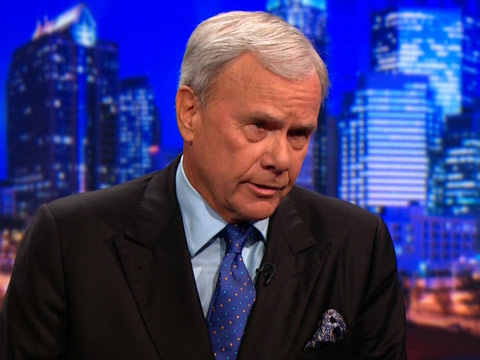Lesson Outline
August 5, 2013

Television journalist Tom Brokaw was the anchor of NBC Nightly News from 1982 until 2004. He covered almost all of the top stories, including the Watergate scandal, the opening of the Berlin Wall and the 2000 Presidential election. After September 11, 2001, he postponed his retirement to cover the attacks. Brokaw retired from NBC Nightly News in 2004 but is still an active journalist and correspondent for NBC.
In this clip from The Daily Show, Brokaw and host John Oliver discuss the age-old tension in journalism between speed and accuracy. Is it more important to get the story first -- or to get it right?
[video width="640" height="360" mp4="/sites/default/files/wp-uploads/2013/08/BrokawClip.mp4"][/video]
QUESTIONS:
Which is more important in reporting -- speed or accuracy? Why?
Daily Show Host John Oliver notes that, "Clearly journalism has gotten faster," but then asks, "Has it gotten better?" What do you think? Why?
What factors have made journalism faster? Have they also made it worse -- or better? In what ways?
Brokaw notes that there are more information choices available today, and "You can pull out a lot of remarkably reliable and highly credible information," but you have to "work harder at it" than before, when reporting was more centralized. Do you agree? What do you do to "work harder" at finding reliable and useful information? What sources of news do you rely on -- and why?
"Has the speed cost us the basic pause for thought?" John Oliver asks. "It seems like just a race to be first now." Do you agree? What recent examples can you think of from your own life where this has happened?
Brokaw also says "We've got to get in front of technology" instead of "chasing it constantly." What do you think he means? What technology is he referring to?
Both Brokaw and Oliver discuss the Boston Marathon bombing as an example of how accuracy in reporting may have suffered from an emphasis on speed. Here is a link to CNL's special interactive package about the Boston bombing. Can you find examples of what they are referring to?
The clip ends with a call for dialogue from Brokaw -- both within journalism, and within society itself - "on how to use technology more wisely to best serve society." What ideas do you have as to how that might happen?

